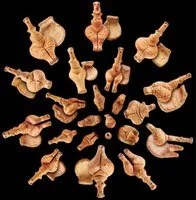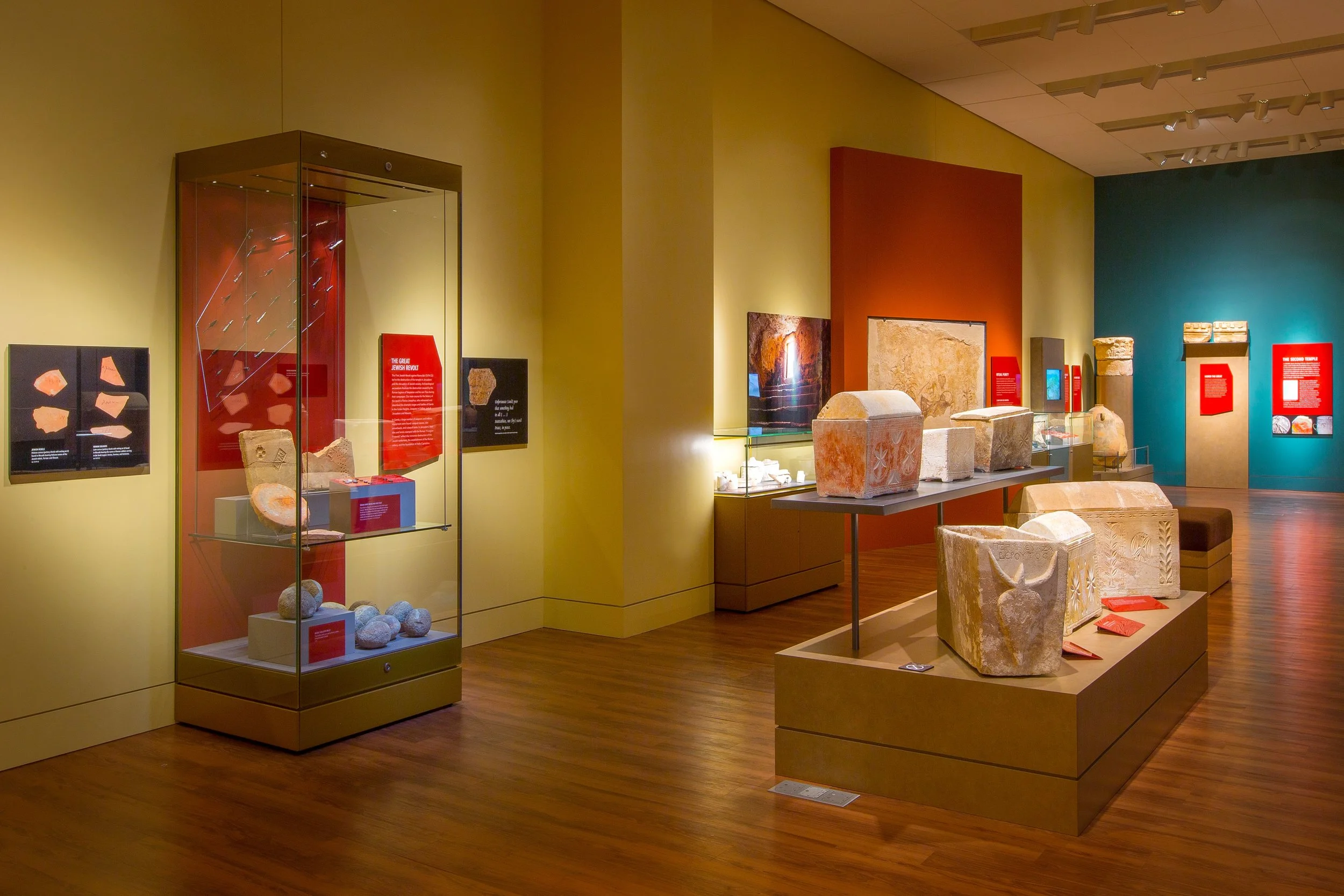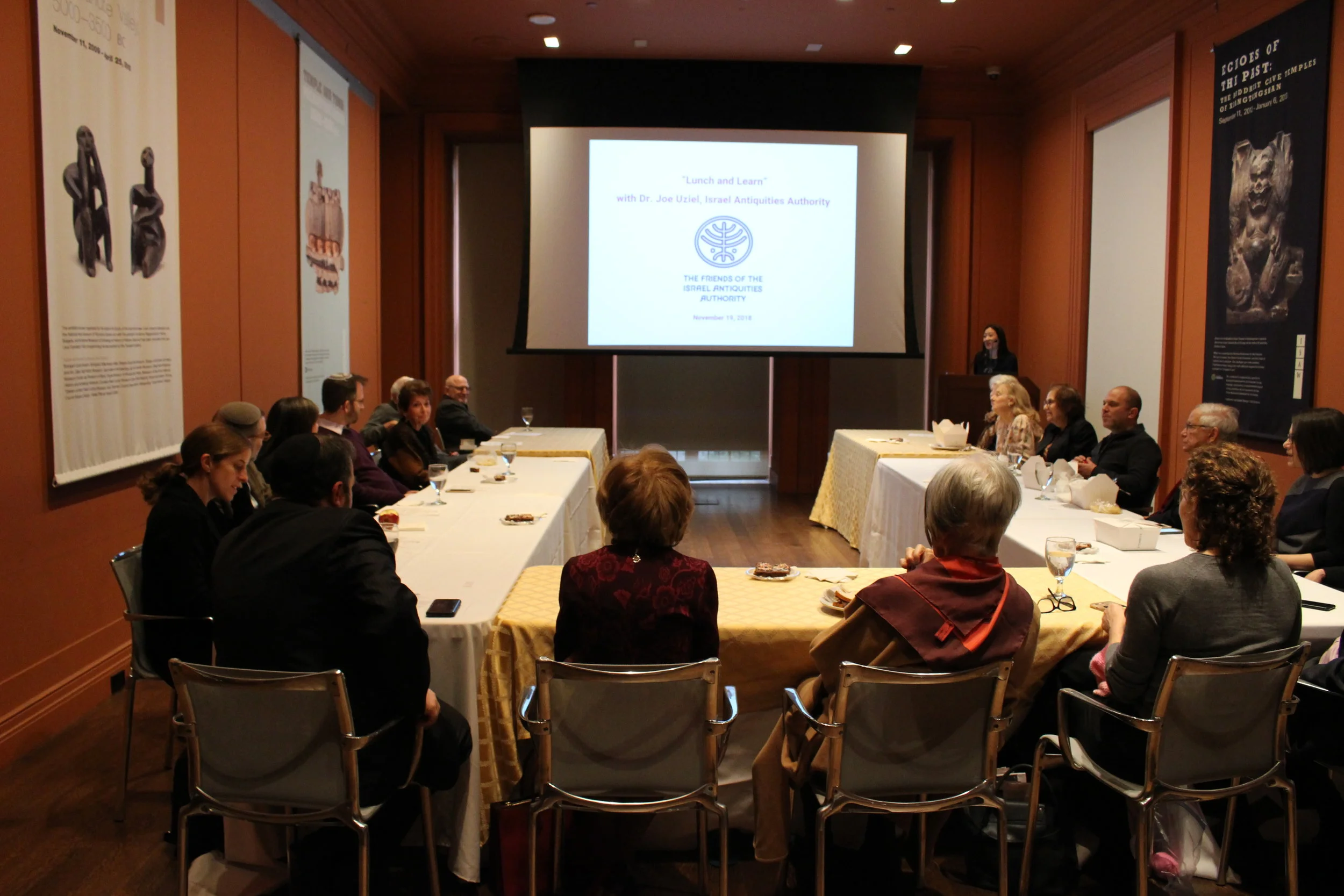Join the Friends of the Israel Antiquities Authority in a private guided tour of NYU’s Institute of the Study of the Ancient World’s newest exhibition, Ritual and Memory — Institute for the Study of the Ancient World (nyu.edu).
For more information, please email info@friendsofiaa.org
In present-day Romania, archaeologists have discovered twenty-one stylized female figurines and thirteen model chairs—none more than 3 1⁄2 inches in height—inside a vessel at a site where a sanctuary likely stood almost seven thousand years ago. Although the ceramic women all share a similar shape, close inspection reveals variations in their faces and bodies, and scholars believe that each depicts a different character. Some have ventured that this collection represents a Council of Goddesses, with the larger figurines symbolizing older divinities. Other researchers believe that these artifacts were used by the Neolithic community that created them to understand aspects of group identity in an earthly realm. Despite the multiple interpretations of this astonishing grouping, scholars are united in their conviction that the figurines served a potent ritual function.
Although no textual sources from this prehistoric culture have come down to us through time, the objects themselves, as well as the location of their discovery inside a vessel, tell us something about one of the first settled European farming communities. Whether these ceramic women were intended to evoke supernatural figures or members of a living community, we know that ancient people attempted to steer their destinies or understand their place in the world through ritual objects. The figurines offer a glimpse into the cosmology of this civilization from ancient southeastern Europe, and hint at practices that mediated human-divine relations and provided structure to social connections.
Featuring loans from eleven countries, Ritual and Memory presents a range of exquisite artifacts—not only figurines but also eating and drinking vessels, jewelry, sculptures, swords, axes, altars, and more — from a region that stretches from the Balkan Mountains to the Carpathian Basin. Beginning in the Neolithic Period (about 8,000 years ago) and extending through the Iron Age (about 2,500 years ago), this show presents seldom-exhibited ritual objects used by men and women, warriors and wives, kings and farmers, in celebrations and in funerals. The exhibition invites visitors to consider beliefs, ritual practices, and community organization in different ancient cultures, and what such artifacts reveal about the connections between various groups in the region in times of both war and peace.
Ritual and Memory also serves as a reminder that these present-day borders are new and based on modern history rather than ancient precedent. The fluidity of cultural practices and the interactions between different ancient groups reinforces the dynamism of ancient southeastern Europe rather than fixed homogeneous divisions. The participation of eighteen lending institutions further signals a new era of international cultural diplomacy and collaboration: our unique historical moment presents an unprecedented opportunity to explore new perspectives on the ancient world across a broad sweep of space and time.
Although many American museums have entire galleries filled with works from the Greeks, Romans, Egyptians, and the ancient Near and Far East, as well as from other cultures, artifacts from ancient southeastern Europe are unfamiliar and rarely exhibited. Yet these stunning works are a revelation: mother goddess–style figurines, weapons, miniature architectural models, elegant pottery, adornments in gold and amber, and more, all reveal great artistic and technological accomplishment and suggest the ritual practices of enigmatic cultures. Presenting more than two hundred artifacts, the Institute for the Study of the Ancient World invites visitors to consider the world views, ceremonies, and social order in these long-silent civilizations, and to explore a much broader view of the interconnectedness of ancient cultures than can be understood through conventional narratives of antiquity.
Ritual and Memory: The Ancient Balkans and Beyond is organized in partnership with the Field Museum's First Kings of Europe project and has been made possible in part by a major grant from the National Endowment for the Humanities: Democracy demands wisdom.
This exhibition at the Institute for the Study of the Ancient World is made possible by generous support from Nellie and Robert Gipson and the Leon Levy Foundation. Additional funding provided by The Gilbert and Ildiko Butler Foundation and James H. Ottaway Jr.
















